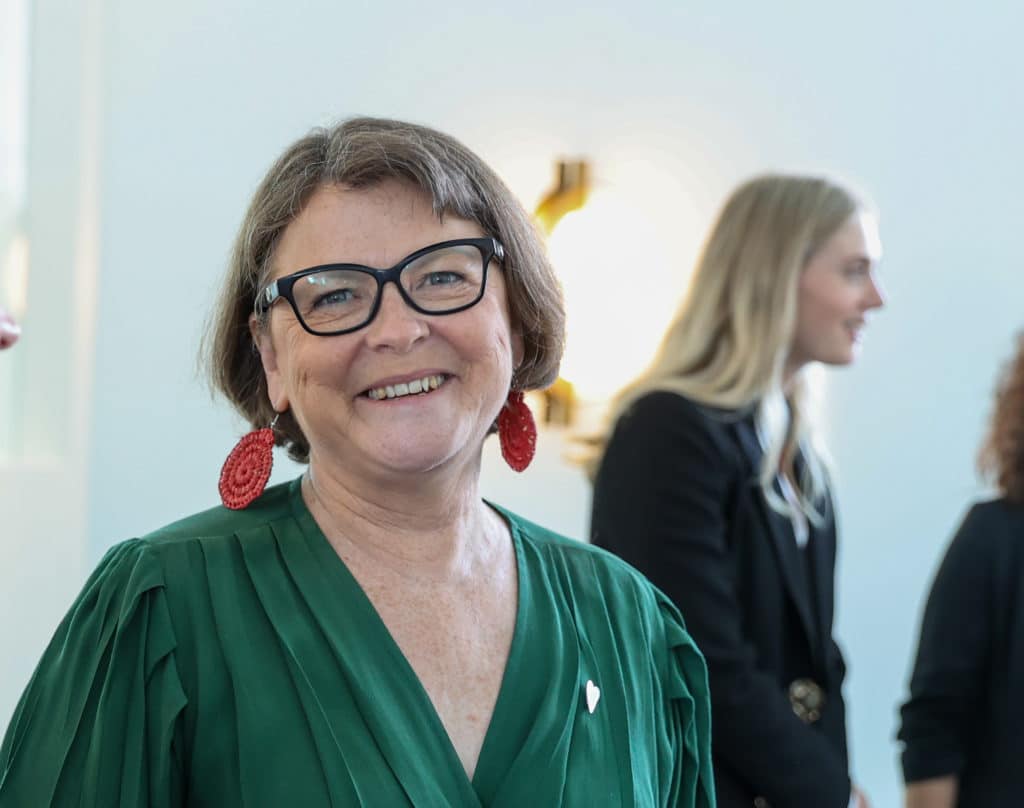Melanie Wilde worked as an advisor for Ged Kearney when she was President of the ACTU. In this piece, Melanie shares a love letter to her old boss following Labor’s $573 million Women’s Health Package and also urges her to consider the impact of loneliness on the community.
Dear Ged,
When we first met, I was a 30-year-old, fresh off the plane from three years in New York, wide-eyed, caffeinated, and full of ideas that were equal parts provocative and naïve. You, as the President of the ACTU, took a chance on me—this slightly chaotic, eager-beaver provocateur—and then you patiently bailed me out every time I unwittingly ruffled feathers with seasoned union leaders. I don’t think I’ve ever thanked you properly for that. So, thank you. You shaped the way I think about leadership, solidarity, and courage.
Fast forward a decade, and here you are, leading the charge with what I can only describe as one of the boldest moves for women’s health we’ve seen in decades. This $573 million Women’s Health Package? Ged, it’s extraordinary. You’ve put menopause, endometriosis, pelvic pain, and contraception front and centre in a way that feels transformative. It’s the kind of work that makes women like me sit up a little straighter and think, “Finally.”
But Ged, you know me. I can’t just throw confetti and not raise my hand. In my years since leaving the ACTU—years spent working in community services, in prisons, with Aboriginal women, domestic violence survivors, and people battling mental health challenges—I’ve learned that health isn’t just about hospitals, doctors, and prescriptions. It’s about people. And it’s about the spaces between people. You know, those invisible networks of connection that hold us together when we’re flailing.
Which brings me to my soapbox. Let’s talk about loneliness—the uninvited guest that crashes every stage of a woman’s life: motherhood, perimenopause, menopause, the works. As you know, we are in a loneliness epidemic, and women experiencing the types of health challenges that have, until now, been underfunded and underexposed, are some of the groups that most acutely feel it. Loneliness doesn’t just mess with our heads; it carves into our bodies too. It increases the risk of premature death by 26%. One in five Australian mothers will experience perinatal mental health conditions. And as I know you’ve seen in your own lived experience, Ged, it’s not just the physical symptoms of conditions like endometriosis or menopause that weigh women down—it’s the isolation, the stigma, and the silence that surround them.
Take endometriosis. As you know from the thousands of women who’ve shared their stories with you, it doesn’t just cause physical pain. It isolates. It gaslights. A survey of Australian women found that 75% felt they weren’t believed by their healthcare providers at some point in their journey. That kind of experience creates a psychological burden that no amount of painkillers can fix.
And perimenopause and menopause? I know you’ve spoken so powerfully about the need to normalise these conversations, because silence makes women feel as though they’re navigating this transition alone. But when women gather to talk—really talk—it’s transformative.
Take the Ainslie Football Club here in Canberra. It’s not just for footy—it’s become a hub for women navigating perimenopause and menopause. Some of my friends are part of this swelling, vibrant group, which has grown into a kind of life raft for hundreds of women. They talk, they laugh, they vent, and most importantly, they learn from one another. They’ve supported each other through the terrifying misinformation about hormone replacement therapy and helped each other build the confidence to have awkward-but-necessary conversations with their workplaces. It’s not just a group—it’s a movement. And it’s transformative in ways that no clinic, however well-funded, can quite replicate.
This is why I started the Foundation for Social Health. It’s designed to bust us out of that endless loop of government dependency, where the system is always under strain, and the missing piece is always connection. We know clinical care and medical interventions are critical, but they’re not the whole answer. We need solutions that mobilise people—not just budgets. That’s why we’re working with Chatty Café Australia to bring the award-winning UK scheme to our backyard. A table, a coffee, a sign that says “Come and Have a Chat.” It’s simple, low-cost, and wildly effective. Ninety-seven percent of participants report better mental health because of it. And these kinds of initiatives align so perfectly with your vision for empowering women’s health.
Your health package is monumental, Ged. You’ve achieved something extraordinary, and I know how hard it is to push these issues in rooms that are still far too full of men. You’ve shown what happens when women like you—and Senator Gallagher, another extraordinary Canberran—get into these spaces and bring other women along. You’ve fundamentally changed what leadership looks like for half the population.
So, Ged, here’s the love letter: I’m inspired, I’m energised, and I’m right here, cheering you on. But also (because you wouldn’t recognise me otherwise), I’m nudging you a little further. Let’s make this half-billion-dollar investment the seed of a people-powered revolution in health. Let’s make it about connection. Let’s make it last.
With deep admiration, a lot of gratitude, and maybe just a little sass,
Mel Wilde
Feature image: Ged Kearney.


